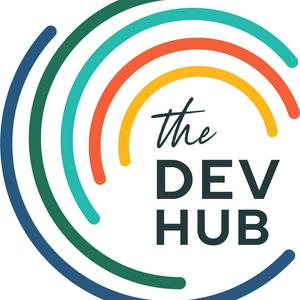Addressing violence against women through community-grounded research. Dr Romina Istratii interviewed.
In this week’s episode, we talk to Dr Romina Istratii, who tells us about the DLDL project, which takes an interdisciplinary approach to looking at domestic violence and religious communities.We speak about co-created research which then feeds back into knowledge production and good practices in the West. This challenges Eurocentric norms around knowledge production by reversing the knowledge transfer as a way to shift power.Romina centres the importance of identity and positionality in situating decolonisation efforts, and points at humility and reflexivity as key principles of co-created and community-grounded research.Dr Romina Istratii is UKRI Future Leaders Fellow at the School of History, Religions and Philosophies at SOAS University of London. She is an interdisciplinary researcher, scholar and practitioner working across international development, gender studies, religion and theology, psychology and anthropology to address societal challenges with gender dimensions. She currently leads and manage a UKRI Future Leaders Fellowship of £1.2 million in Ethiopia and the UK that responds to domestic violence in religious communities working through an interdisciplinary, decolonial and innovative partnerships model with government, NGOs and grassroots groups. For the past 13 years, she has worked in development-oriented research to promote epistemological reflexivity, ethical research practices and healthy partnerships and collaboration models. She have led numerous initiatives within and beyond the university, having initialised the Decolonising Research Initiative under the aegis of the SOAS Research Directorate and in 2020, and co-founded Decolonial Subversions in 2020. She is the author of the monograph Adapting Gender and Development to Local Religious Contexts: A Decolonial Approach to Domestic Violence in Ethiopia (Routledge, 2020).If you’re interested to find out more about Romina's work, take a look here:Dr Romina Istratii | LinkedInDr Romina Istratii | SOASRecent work:Istratii, R. and Laamann, L., eds (2024) Orthodox Churches and War Politics in Ethiopia and Ukraine: Historical, Ecclesial and Theological Reflections. Studies in World Christianity. Vol. 30, no.2.Edinburgh: Edinburgh University Press.Relevant resources:Our multilingual website: Home - Project dldl/ድልድልOur Outputs, listed under Research, Engagement & Intergration, and Knowledge Exchange: Outputs - Project dldl/ድልድልAll our webinars and conferences on Vimeo: Project dldl/ድልድል (vimeo.com)Our theologically-grounded training manual used in workshops with Ethiopian Orthodox clergy, a programme co-created and co-delivered with EOTC DICAC: Booklet_final_English—PDF.pdf (projectdldl.org)A recent policy brief on working with religious leaders and clerics internationally to respond to DVA/GBV: Polcy Brief Template.indd (projectdldl.org)Conference proceedings from our 2022 conference in Ethiopia: Conference-Proceedings_FINAL.pdf (projectdldl.org)Trailers to our film Tidar on YouTube (which we just launched yesterday):

